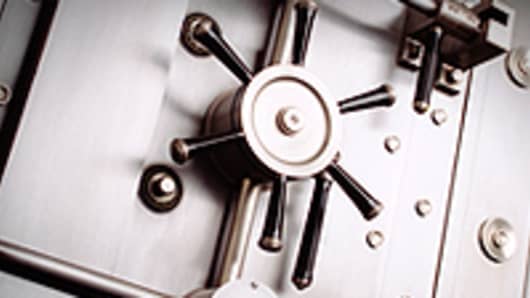Lots of people have written about how ridiculous it is that the Federal Reserveclaims its loans to the European Central Bankare "secured."
The problem is that the loans are only secured by euros that exist only in electronic form on a database in Frankfurt, where the ECB is based. If the ECB ever defaulted on the loan, we wouldn't be able to collect our collateral without invading Europe. If we smashed Europe to reclaim our collateral, the value of the euro would fall to zero anyway.
The entire ECB swap operation sounds like magical monetary theory. But nothing really gets swapped except digits in databases.
The thing is there's nothing really all that new about this sort of thing. It's been going on for a long, long time.
Back in 1931, the United Kingdom went off the gold standard and suspended the convertibility of the pound. This worried monetary authorities and financiers all around the world. The Bank of France, which was in the process of accumulating a massive gold horde that would eventually amount to 27 percent of the world's gold supply, worried the U.S., too, might abandon gold. To prevent being stung by a potential U.S. monetary policy change, the Bank of France asked the Federal Reserve Bank of New York to convert a major portion of its dollars into gold.
The Federal Reserve did this, prompting scary headlines about gold being "drained" out of the U.S.
But in reality no gold left the U.S. Shipping that amount of gold across the Atlantic Ocean would have been an enormous undertaking.
Instead, the Federal Reserve just marked some of the drawers in its gold vault with a note indicating their contents now belonged to the Bank of France.
France, of course, had no real recourse to the gold if the U.S. decided to default on its promises. It had redeemed the dollars on paper but, in reality, its access to gold still depended on the goodwill and trustworthiness of the U.S. government.
Questions? Comments? Email us atNetNet@cnbc.com
Follow John on Twitter @ twitter.com/Carney
Follow NetNet on Twitter @ twitter.com/CNBCnetnet
Facebook us @ www.facebook.com/NetNetCNBC



